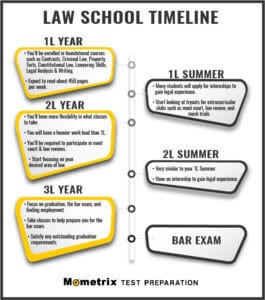How Many Years Does Law School Take?

If you’re considering a career in law, one of the first questions you might ask is, "How many years does law school take?" The answer varies depending on the country, program, and your personal circumstances. In the United States, a traditional Juris Doctor (JD) program typically takes three years to complete. However, accelerated programs, part-time options, and international variations can alter this timeline. Understanding these options is crucial for planning your legal education effectively, whether you’re aiming for a law degree, preparing for the bar exam, or exploring legal careers.
Traditional Law School Timeline: 3 Years

In the U.S., the standard law school duration is three years for full-time students. This structure is designed to provide a comprehensive legal education, covering core subjects like contracts, torts, and constitutional law. Here’s a breakdown of the typical timeline:
- First Year (1L): Focuses on foundational courses and legal research and writing.
- Second Year (2L): Allows for specialization with elective courses.
- Third Year (3L): Often includes advanced electives, clinics, and preparation for the bar exam.
This timeline is ideal for students who can commit to full-time studies and want to enter the workforce as soon as possible, focusing on areas like criminal law, corporate law, or family law.
Accelerated Law Programs: 2 Years

For those looking to complete their legal education faster, accelerated law programs offer a two-year option. These programs condense the curriculum by eliminating summer breaks and increasing course loads. While challenging, they can save time and reduce overall tuition costs. However, they require a high level of dedication and may limit opportunities for internships or part-time work in areas like public interest law or environmental law.
Part-Time Law School Options: 4+ Years

Not everyone can commit to full-time studies. Part-time law programs allow students to balance work, family, or other commitments while pursuing their degree. These programs typically take four years or more, depending on the course load. They are ideal for career changers or individuals seeking flexibility in their legal education.
International Law School Durations

Outside the U.S., law school timelines differ significantly. For example:
| Country | Duration |
|---|---|
| United Kingdom | 3 years (LLB) or 1 year (GDL for non-law graduates) |
| Canada | 3 years (JD) |
| Australia | 4 years (combined undergraduate degree) |

Understanding these variations is essential for students considering international law or studying abroad, especially in fields like human rights law or international trade law.
Factors Influencing Law School Duration

Several factors can affect how long law school takes, including:
- Program Type: Full-time, part-time, or accelerated.
- Country/Region: Legal education systems vary globally.
- Personal Circumstances: Work, family, or financial considerations.
For those exploring law school admissions or law school rankings, understanding these factors can help in making informed decisions.
📌 Note: Always check specific requirements for your chosen law school and jurisdiction, as they can impact your timeline and eligibility for the bar exam.
In summary, the duration of law school ranges from two to four years or more, depending on the program and your circumstances. Whether you opt for a traditional three-year JD, an accelerated program, or a part-time schedule, planning ahead is key. Consider your career goals, financial situation, and personal commitments when choosing the right path. With the right preparation, you can successfully navigate your legal education and embark on a rewarding career in law, whether in criminal justice, corporate law, or public policy.
How long does law school take in the U.S.?
+
In the U.S., a traditional Juris Doctor (JD) program typically takes three years for full-time students.
Can I complete law school in less than three years?
+
Yes, accelerated programs allow students to complete their JD in two years by condensing the curriculum and eliminating breaks.
What are part-time law school options?
+
Part-time programs allow students to extend their studies over four years or more, offering flexibility for work or personal commitments.
How does law school duration vary internationally?
+
Durations vary by country, such as 3 years in the UK (LLB) and 4 years in Australia (combined undergraduate degree).
What factors influence law school duration?
+
Factors include program type, country, and personal circumstances like work or family commitments.



